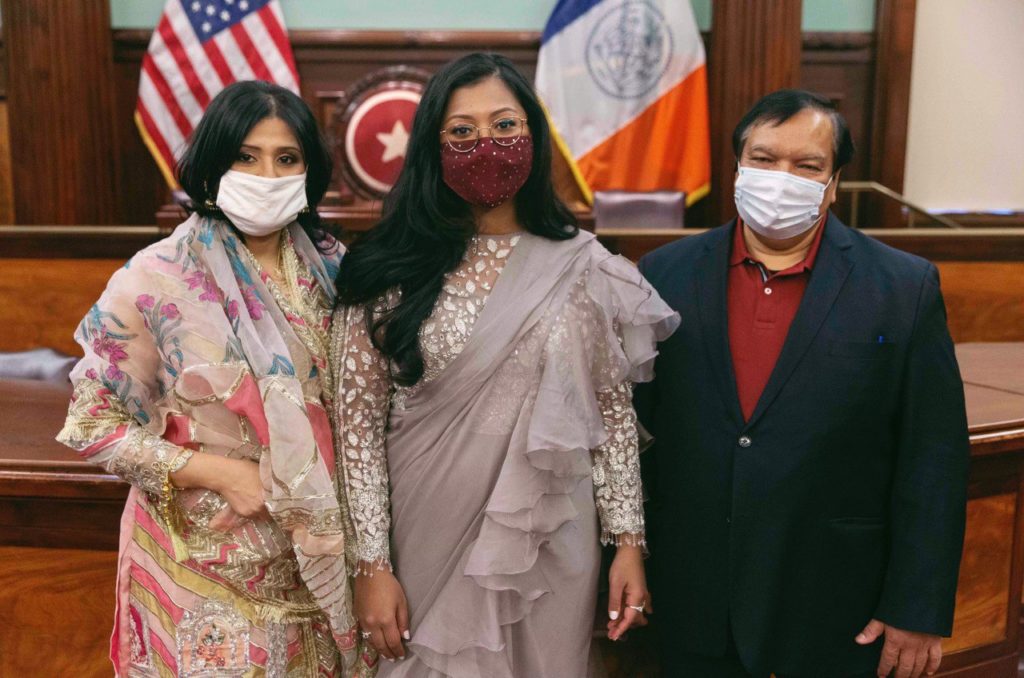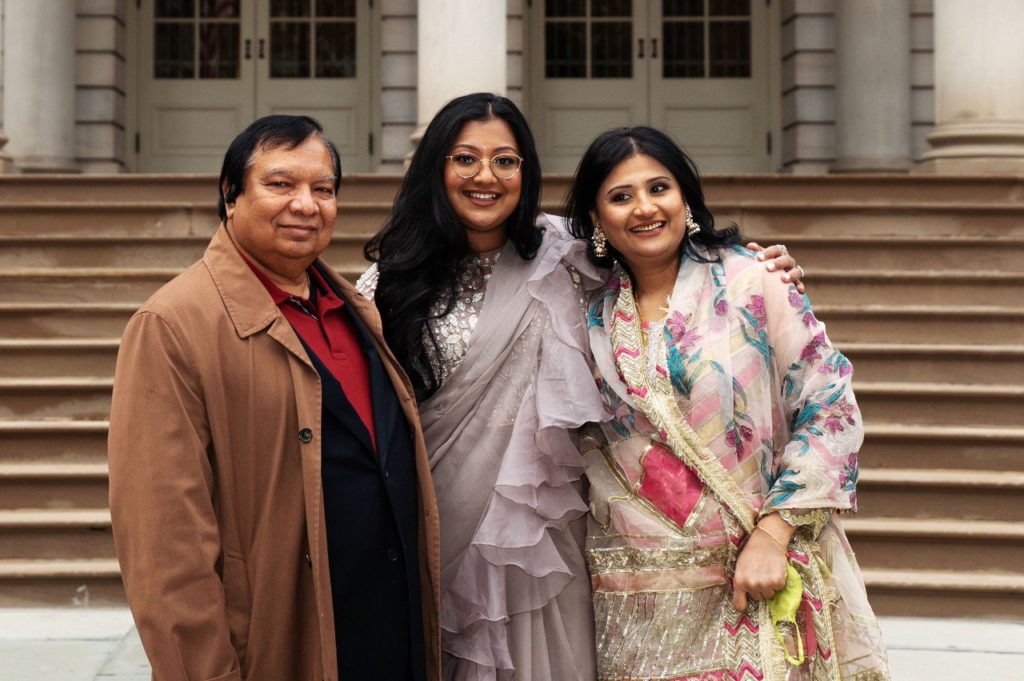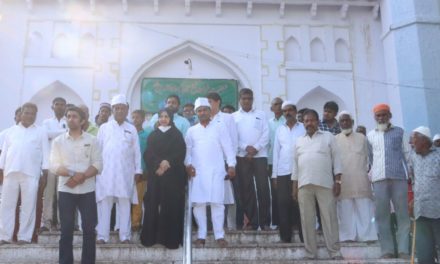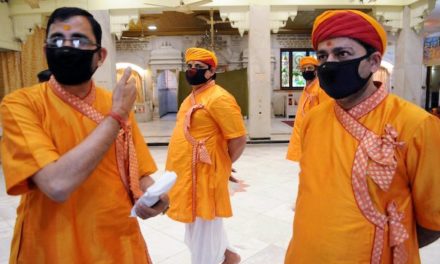New York: On 2nd November Tuesday, when Shahana Hanif, a former City Council employee, won her election in a central Brooklyn district, She became the Part of History by becoming the first Female Muslim Council Member. New York city is home to an estimated 769,000 Muslims.
Shahana Hanif, a 30YO Bangladeshi American born and raised by immigrant parents in Kensington, Brooklyn is the first muslim as well as first South Asian woman elected as member of New York City Council for the 39th Disctrict, which covers many neighborhoods of Brooklyn.
At the swearing-in ceremony for the New York City Council, Shahana Hanif, 30, created a flutter & wore a grey saree and held the Koran in her palm. She was the first Muslim member elected in the council’s history. She’ll assume the office from 1st Jan 2022.
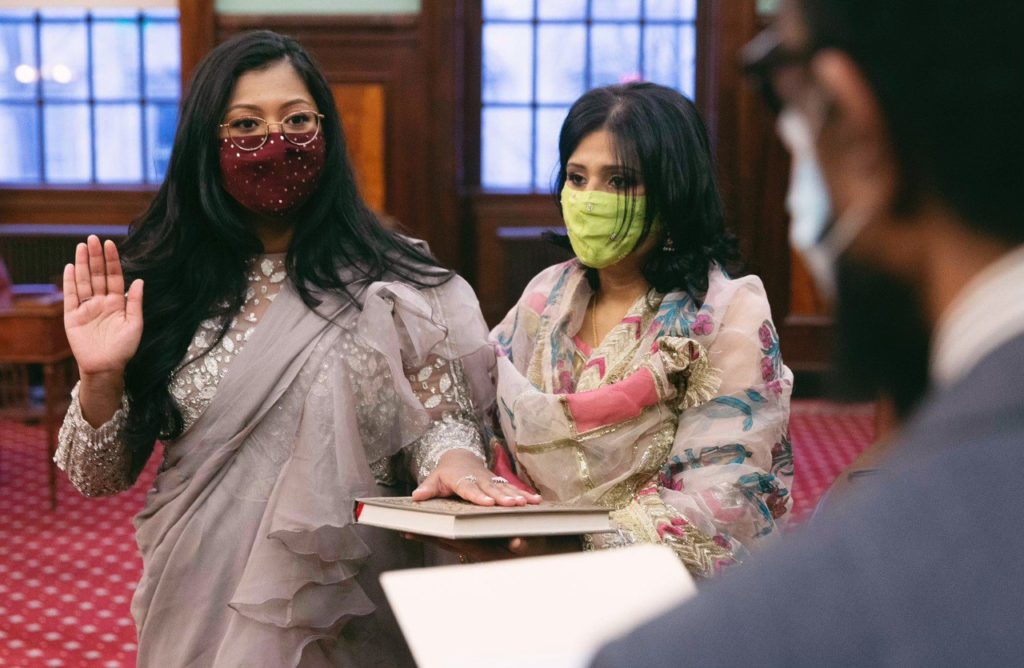
Never One to Shy about her Origins and the religious belief, During her election campaign, Shahana Hanif wore her identity on her sleeve even more. She not only appeared in traditional Kurtas during her campaign commercials and election campaign meetings, but she also proudly acknowledged her Bangladeshi identity as an American.
Ms. Hanif who is well-known for her fight against domestic violence came to light when she helped a young Bangladeshi women escape from an abusive forced marriage to safety following which she was profiled in the New York Times, Bklyner, Teen Vogue etc. at That time she was working for Councilman Brad Lander, later she cited this issue as an important factor in her eventual decision to run for the New York City Council herself.
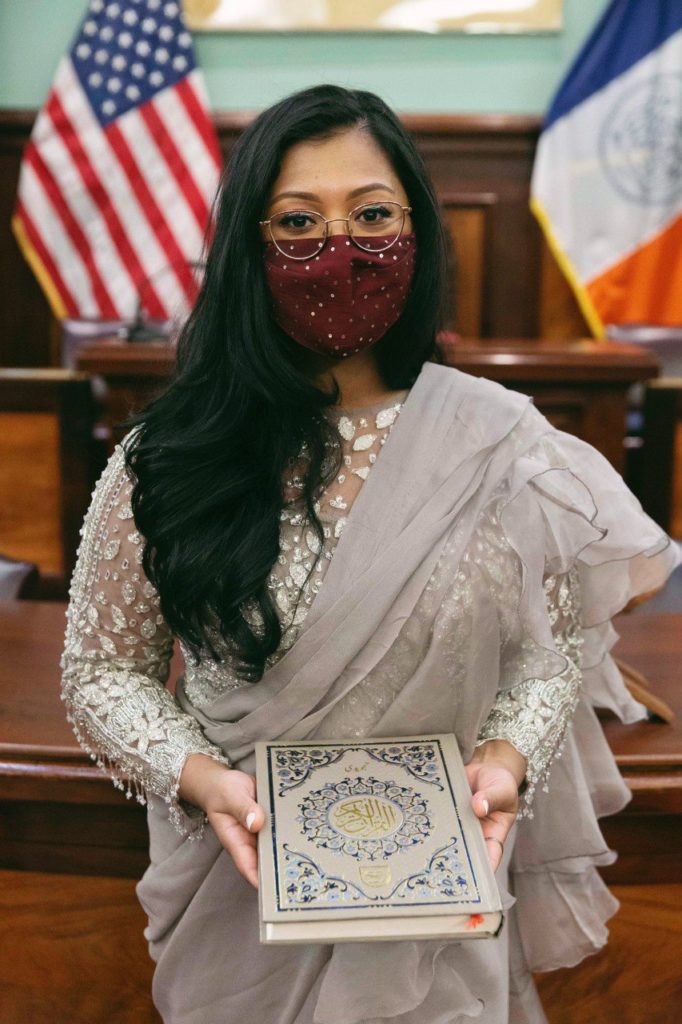
Clad in Saree, Shahana Took Oath on Quran Shareef.
Herself a survivor of a hate Crime, Hanif was abused as terrorist when was just 10yr old at the time of 9/11 terror attack, following sharp rise in hate crimes against Muslim and Asians after the incidence. But Shahana Haneef didn’t let that from dreaming, Her Victory In Nov 2021 elections, she had won a whopping 89% vote in a after sweeping the Primaries with 57% Votes. Ms Hanif replaced Councilman Brad Lander for whom she worked in 2017, first as his liaison to the Bangladeshi community and eventually as his director of organizing and community engagement.
At age 17, Hanif was diagnosed with lupus, an incurable and potentially fatal autoimmune disease. Hanif has cited her experience with the chronic illness, which forced her to navigate the healthcare system for years despite having inadequate health insurance, as her first window into disability justice and community organizing.
Shahana Hanif a former city council employee extensities in organizing to improve, supporting the arts and fighting for a better criminal justice system. Her work includes Advocating for a health care system that actually works for those in actual need, And for disability rights as she herself suffers with Lupus(an inflammatory disease that targets tissues), Organising self defense work shop for Muslim women. Protecting survivors of domestic violence, Starting a free immigration law clinic, Building community halls for large gatherings and events.
After Her Elections Shahana Said “she was humbled and proud” to be the first Muslim woman on the council and first woman of any faith to represent District 39. “Together we are building an anti racist & a feminist city”. she added “We deserve a city that protects it most vulnerable a city that has equitable education”.
Growing up in Brooklyn, Shahana Hanif’s degree in Women and Gender Studies gave her such strength that she became a strong voice for women, lower classes, religious minorities and immigrants. Staying connected to Bangladeshi roots, in order to change the plight of Bangladeshi women, Shahana Hanif formed a group of Nari Shungothok, a Bangladeshi women activists in her youth, whose job was to raise awareness about women’s rights.
Shahana Hanif who was once seen as a student protesting against the surveillance of Muslims by the police in New York and sometimes became the voice of their rights in the strike of taxi drivers has made the South Asian and religious minorities especially happy as she is rooted in the community and happens to know the issues of the working class families.
